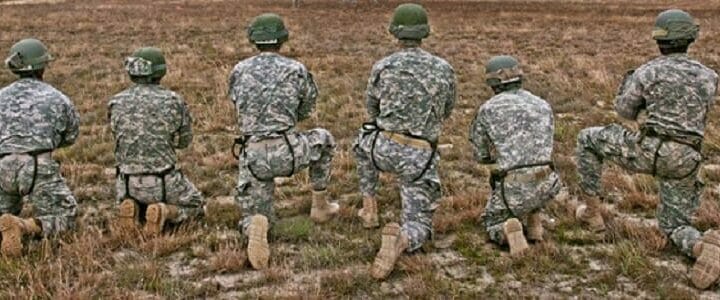“When reminded that his army had not defeated the U.S. Army on the battlefield, a North Vietnamese officer aptly replied, ‘That may be so, but it is also irrelevant.’ ” – Colonel Harry G. Summers, On Strategy: A Critical Analysis of the Vietnam War
As we enjoyed our coffee and conversation, it rarely occurred to me that we were separated by a generation. We were both veterans, our life experiences not that much different, and many of our war stories share the same morals. The man on the other end of the conversation, a Vietnam-era veteran and former crew member of the ill-fated USS Liberty, regaled me with tales of people and places, of memories gone but not forgotten, and old friends he’d buried over the years. Our stories bounced back and forth, careening off the decades that separated our respective experiences.
Finally, he struck a sharp chord: “What’s it like to win a war?” He’d returned home at a time when the public had turned against the war in Vietnam, enrolled in college only to watch the student union building burned by protesters, and remarked that he and his fellow veterans learned to “keep quiet” and “maintain a low profile” as they blended back into American society. He was only a boy when the “Greatest Generation” returned from World War II; his generation spanned Korea and Vietnam, wars that could hardly be considered victories.
As I searched my memory, my mind quickly seized on Operation Just Cause, the 1989 invasion of Panama. Definitely successful, but was it a war? My own experience in the Gulf War came to mind. Again, a resounding success, proof that our operational concept was sound, and a great example of the power of an international coalition. But, having also been a part of the second invasion in 2003, I know that despite all our successes in that first campaign, we didn’t break the will of our enemy. Saddam Hussein remained defiant until he hung from the gallows at Camp Justice in 2006.
What’s it like to win? After two decades of war, I’m not sure I know, either. The end of the Iraq War was conclusively inconclusive. I was there in 2003 when we toppled Hussein’s government only to see an insurgency rise in its place. I was there again after we withdrew the majority of our forces, only to see ISIS rise from the ashes of the insurgency. Nearly 30 years after I first set foot in that country, I can’t help but think that the conflict will live on as long as there exists a sectarian divide. Not exactly what Sun Tzu would have defined as a “win.”
Then there’s the war in Afghanistan, the “coulda-shoulda-woulda” war. The war we could have won, should have won, if only we would have kept our eye on the ball when it mattered. Instead, we diverted our attention to Iraq, tried to maintain the fight in Afghanistan as an economy of force operation, and lost the initiative as well as our momentum. Today, talk of “winning” is rare. Even as we negotiate an end to hostilities with the Taliban, they are quick to remind us that no deal will prevent further attacks on Afghan forces. It’s hard to call that a win.
As I looked across the small table where our Starbucks cups sat empty, I answered the only way I knew how: “I don’t know.”
In fact, I realized as we talked that the current negotiations with the Taliban bear a remarkable – if tragic – parallel to the Paris Peace Accords. We knew then, as we know now, that the treaty did not necessarily mean an end to the violence. It was, however, a way to secure “peace with honor,” as President Nixon remarked in a speech only four days before the accords were signed. Two months later, the last U.S. soldier departed South Vietnam; two years later, Saigon fell to the North Vietnamese.
What’s it like to win? I honestly don’t know.




